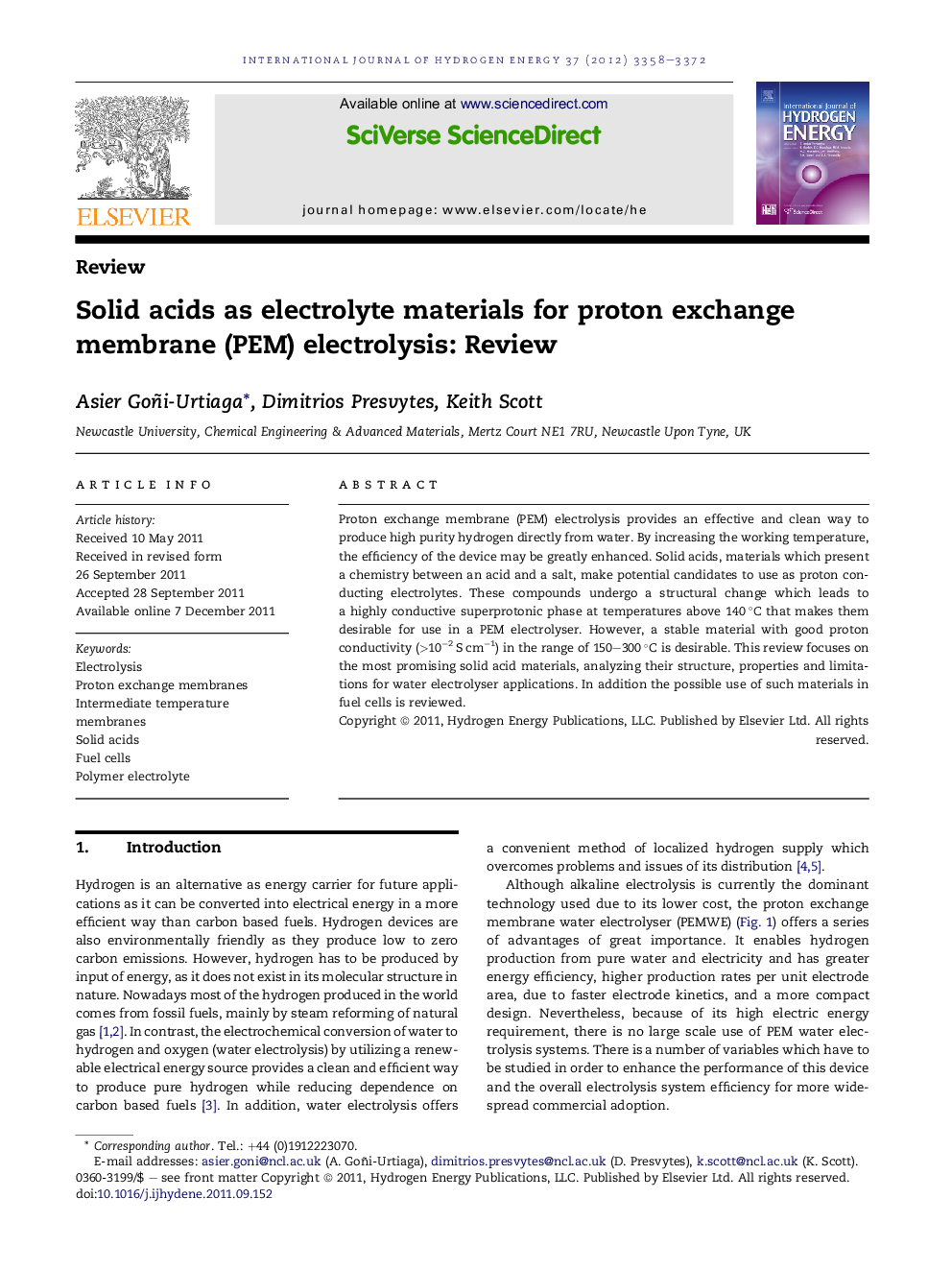| Article ID | Journal | Published Year | Pages | File Type |
|---|---|---|---|---|
| 1282344 | International Journal of Hydrogen Energy | 2012 | 15 Pages |
Proton exchange membrane (PEM) electrolysis provides an effective and clean way to produce high purity hydrogen directly from water. By increasing the working temperature, the efficiency of the device may be greatly enhanced. Solid acids, materials which present a chemistry between an acid and a salt, make potential candidates to use as proton conducting electrolytes. These compounds undergo a structural change which leads to a highly conductive superprotonic phase at temperatures above 140 °C that makes them desirable for use in a PEM electrolyser. However, a stable material with good proton conductivity (>10−2 S cm−1) in the range of 150–300 °C is desirable. This review focuses on the most promising solid acid materials, analyzing their structure, properties and limitations for water electrolyser applications. In addition the possible use of such materials in fuel cells is reviewed.
